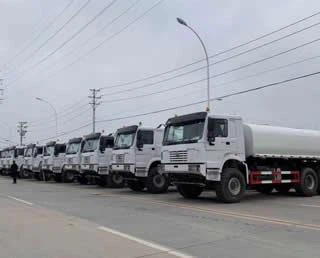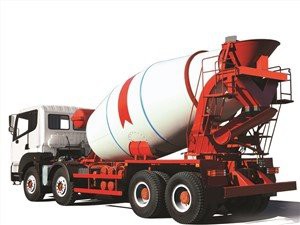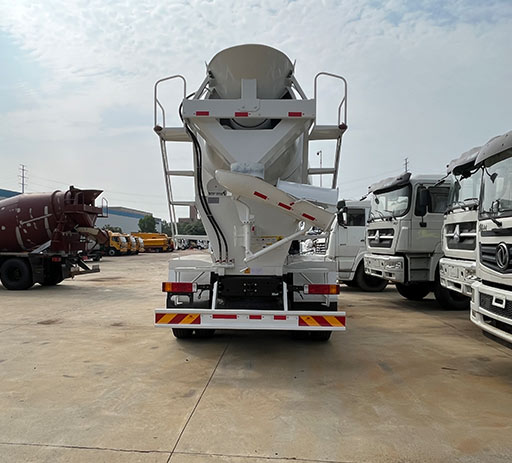Best Time of Year to Buy a Travel Trailer: Unlock Your Adventure Savings

Buying a travel trailer can be an exciting step toward adventure, allowing you to explore the great outdoors in comfort. However, timing your purchase can make a significant difference in the final price you pay. In this comprehensive guide, we will explore the best time of year to buy a travel trailer, tips for securing the best deals, and practical examples to ensure you maximize your investment.
Understanding the Travel Trailer Market
The travel trailer market is dynamic, influenced by several factors such as seasonality, demand, and manufacturer cycles. Understanding these variables can help you pinpoint the optimal time for your purchase.
1. Seasonal Trends in the Travel Trailer Industry
Travel trailers typically experience seasonal fluctuations in price and availability. These trends can provide buyers with the upper hand if they know when to shop.
Spring and Summer: Peak Season
Spring and summer are traditionally the peak seasons for travel trailer sales. This is when families start planning their summer vacations, leading to increased demand. Prices may be higher during this time due to the influx of buyers.
Fall and Winter: Off-Season Opportunities
Conversely, fall and winter typically see a decline in demand for travel trailers. As temperatures drop and camping trips become less frequent, dealers often lower prices to move inventory. This period can be a great opportunity for buyers looking for discounts.
2. Model Year Changes
Many manufacturers release new models at the end of the summer or the beginning of fall. This means that previous year models are often heavily discounted when the new models hit the market.
3. Economic Factors Affecting Pricing
In addition to seasonal changes, economic factors such as fuel prices, interest rates, and consumer confidence can also affect travel trailer prices. Staying informed about these trends can help you choose the best time to buy.
When to Buy: Monthly Breakdown
To help you navigate the best times of year to purchase a travel trailer, we’ve created a monthly breakdown with corresponding advantages and disadvantages.
| Month | Advantages | Disadvantages |
|---|---|---|
| January | Lowest prices, less competition | Limited inventory, cold weather |
| February | Same as January | Same as January |
| March | Beginning of spring inventory | Prices begin to rise |
| April | Good selection, competitive prices | Peak buying season approaches |
| May | High inventory levels | Increased demand and prices |
| June | Wide selection of models | Peak season pricing |
| July | Sales events and promotions | Highest demand period |
| August | End of summer sales | High competition for models |
| September | End-of-year discounts begin | Less selection, transitioning inventory |
| October | Great deals on last year’s models | Less inventory |
| November | Black Friday sales | Limited selection |
| December | End-of-year clearance sales | Limited options due to low inventory |
Best Times for Special Offers and Promotions
Knowing when to look for sales can further streamline your purchasing experience. Here are the best times of the year you should keep an eye out for special offers:
Holiday Sales
Holidays such as Labor Day, Memorial Day, and Black Friday are excellent opportunities to find discounts. Dealers often run promotions or clearance sales to attract buyers during these busy shopping periods.
Manufacturer Promotions
Manufacturers may run promotional events or offer rebates on specific models or lines. Subscribing to manufacturer newsletters can keep you informed about these deals.
Tips for Negotiating the Best Price
Once you understand when to shop, mastering negotiation tactics can result in additional savings.
Do Your Research
Before visiting a dealership, research the specific models you are interested in, including their retail prices, features, and reliability ratings. Knowing the market can empower you during negotiations.
Be Flexible with Timing
If possible, visit dealerships during weekdays rather than weekends when they are busier. This often results in more personalized attention and better offers.
Compare Multiple Dealers
Visit several dealerships to compare prices and inventory. Having multiple offers can enhance your leverage during negotiations.
Be Prepared to Walk Away
If the deal doesn’t feel right, don’t hesitate to walk away. This lets the dealer know you are serious about finding the right price, and they may offer you a better deal to keep your business.
Financing a Travel Trailer Purchase
Understanding your financing options is crucial to making a smart purchase. Different types of loans and financing plans can significantly impact your overall cost.
Types of Loan Options
There are several financing options available for travel trailer purchases, including:
- Personal loans: Unsecured loans you can use for travel trailers.
- RV loans: Specifically structured loans for RV purchases, often with lower interest rates.
- Manufacturer financing: Some manufacturers offer in-house financing with promotional deals.
Understanding Interest Rates
Interest rates can vary based on credit scores, loan terms, and lender requirements. Always shop around for the best interest rates, and consider discussing your plans with a financial adviser to ensure you get the best deal.
Maintenance Costs After Purchase
Owning a travel trailer comes with ongoing costs that you should consider as part of your budgeting process.
Insurance Costs
Insurance for travel trailers can vary greatly, so be sure to obtain multiple quotes. Consider factors such as coverage types and deductibles to find the best fit for your needs.
Storage Expenses
If you don’t have space to park your travel trailer at home, you may need to rent a storage unit, which can be an added monthly expense.

Maintenance & Repairs
Regular maintenance is key to preserving the value of your trailer. Budget for annual inspections, tire replacements, and routine upkeep costs.
FAQs about Buying Travel Trailers
What is the average cost of a travel trailer?

The average cost of a travel trailer can range widely, from $10,000 to $100,000, depending on the size, brand, and features.
Is it cheaper to buy a used travel trailer?
Yes, buying a used travel trailer can save you a significant amount of money compared to purchasing a new one. However, ensure to check for any signs of wear and mechanical issues.

Should I buy a travel trailer from a dealership or a private seller?
Dealerships often provide warranties and financing options, while private sellers may have lower prices. Weigh the pros and cons based on your specific needs.
When is the best time to sell my travel trailer?
The best time to sell is typically in spring or early summer, as demand is higher during those months.
How do I know if I’m getting a good deal?
To ensure you’re getting a good deal, research the model’s market price, consult reliable sources, and compare offers from multiple sellers.
Is full-time RVing worth it?
Full-time RVing can be rewarding and provides a unique lifestyle, but it’s important to evaluate if it aligns with your personal and financial goals.
